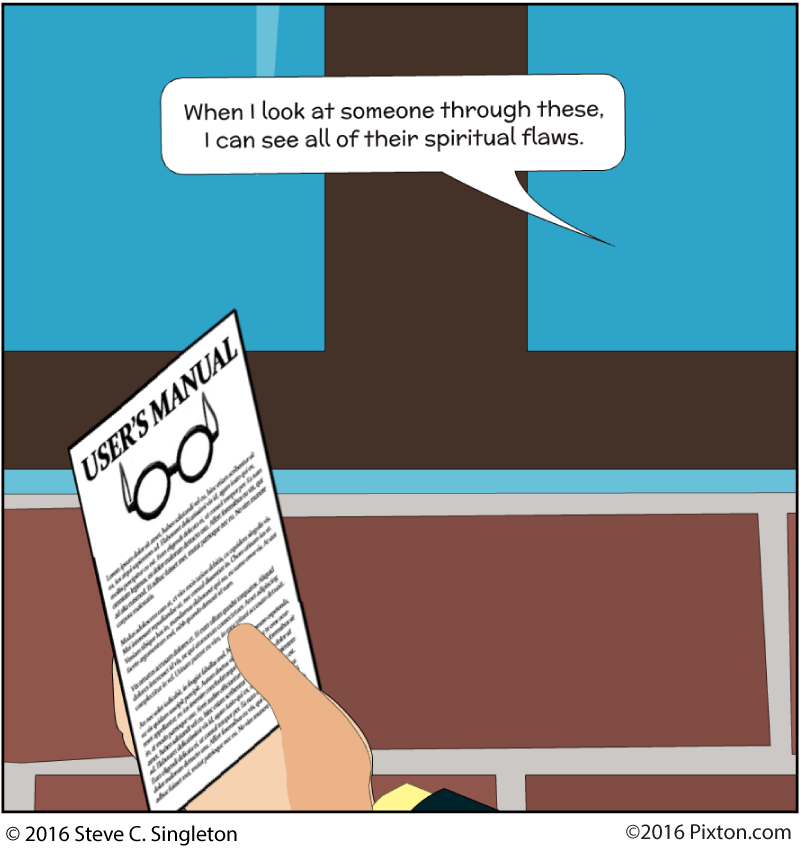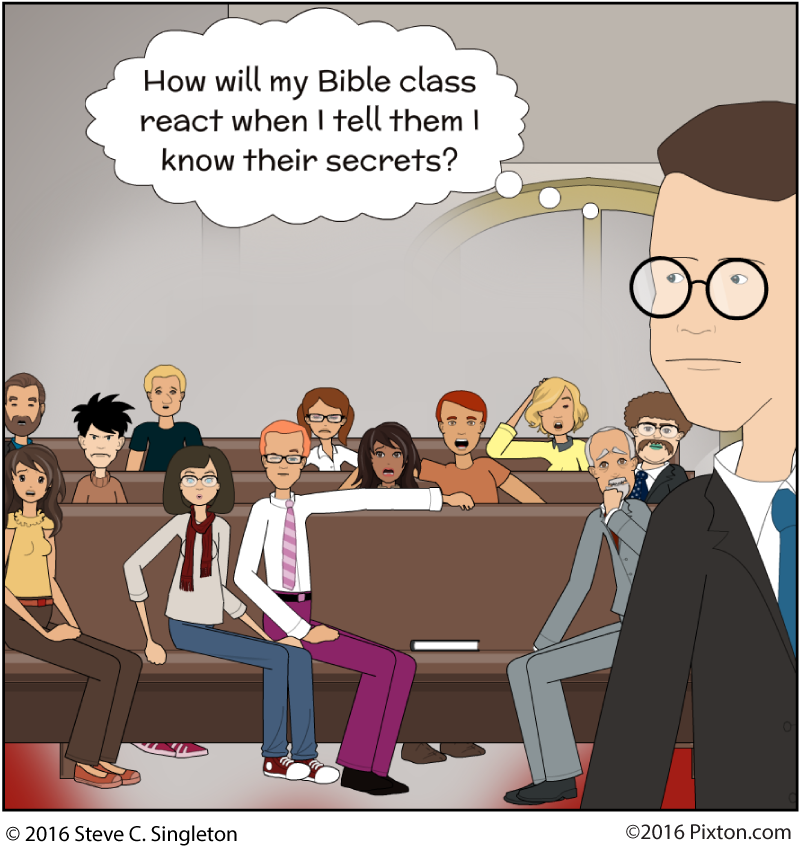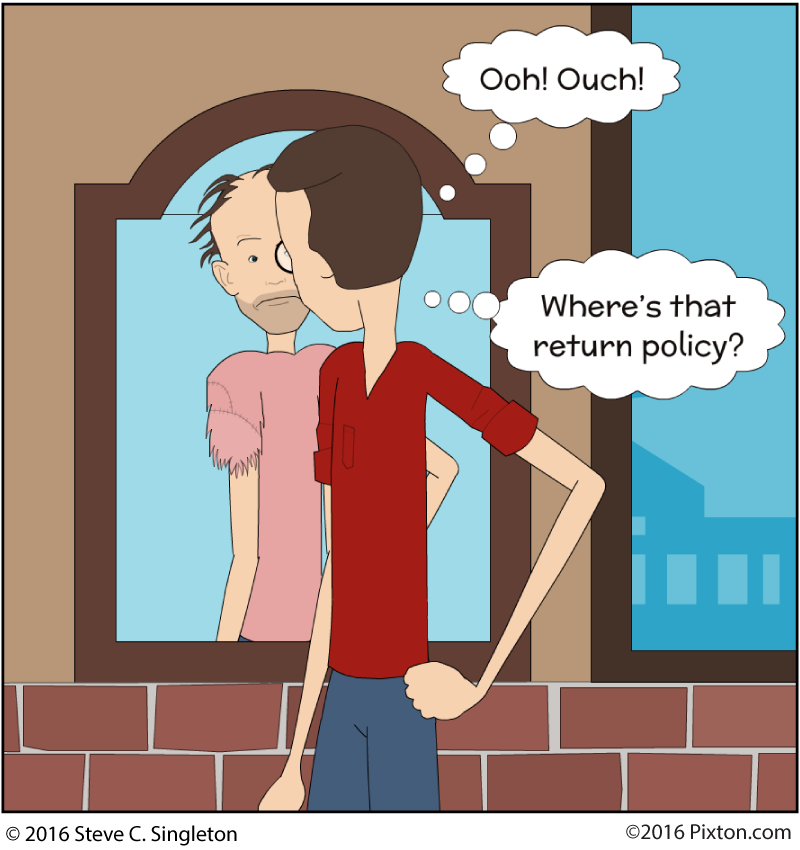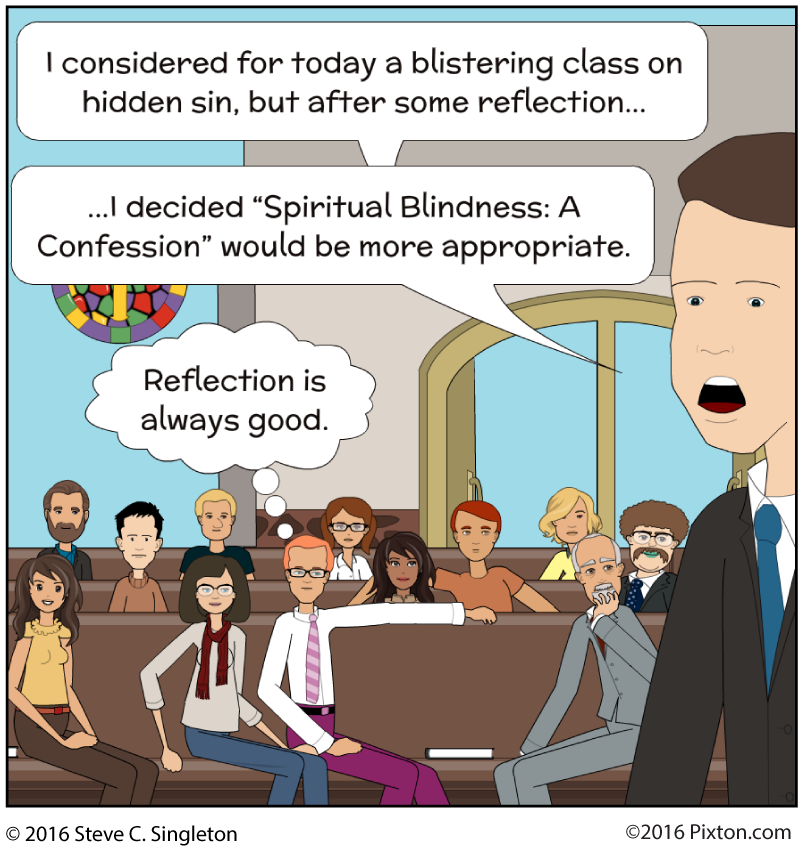Spiritual blindness: Seeing only the surface, not the heart
Jesus warns the Pharisees
Again and again, when Jesus reaches out to the Pharisees, he contrasts what stands on the surface and what lies beneath. He says they are like whitewashed tombs: beautiful to look at but inwardly corrupt (Matthew 23:27). Worse, he calls them unmarked graves: people in contact with them defile themselves without even knowing it (Luke 11:44). He compares them to cups hastily rinsed by a careless dishwasher: clean on the outside but still dirty inside (Matthew 23:25-26; Luke 11:39).
Why are the Pharisees so blind?
Despite these warnings from the Master who has the ability to diagnose heart trouble, the Pharisees are apparently unaware of their spiritual blindness. Why can’t they see? At least three reasons seem obvious.
1. They are overconfident of their ability to see
In Luke 18:9-14, the author of the third evangelist writes that Jesus aims His Parable of the Pharisee and the Tax Collector at “some who were confident of their own righteousness and looked down on everyone else.” At the end of the parable, Jesus adds a moral: “for all those who exalt themselves will be humbled, and those who humble themselves will be exalted.”
The Pharisees are so proud of their own religious accomplishments that they willingly take a daily elevator ride, seeking a vantage point far above the heads of ordinary people. Their accomplishments, however, seem limited to what they and other people can see. They have nothing to do with inner purity, integrity, or genuine humility before God. Unaware that anything is wrong, they take no steps to correct their mistake.
2. They habitually look out rather than looking in
The Pharisees are self-appointed judges of the behavior of the people around them. They do not think that judging themselves appears on their job description. Jesus warns that the log in their own eye makes them poor ophthalmologists for anyone else (Matthew 7:3-5). And the log has embedded itself so long that they are unaware it blocks their sight.
3. Their hidden faults have enslaved them
Exercising his divine power to examine their hearts, Jesus finds there greed, self-indulgence, and wickedness (Matthew 23:27; Luke 11:39). Apparently, the Pharisees are unaware that they are just as much in need of the Great Physician as the tax collectors and sinners. They have concealed their sins so long that now they lie hidden even from themselves. Sins like greed and self-indulgence are easily rationalized. They cling to us and strongly resist all efforts to root them out. The longer they remain, the more they clutch at the heart until they squeeze it to death.
What about us?
When studying about the Pharisees we must be aware of and resist the temptation to consider ourselves righteous and to look down on them. The gospel accounts can warn us if only we will listen: self-deception is common and insidious. Before you look at anyone else, take a hard look at yourself in the biblical mirror, and deal immediately with the sin you find in your own heart. May God grant us the power to be that honest and the forgiveness to begin the healing process He desires for us Pharisees.
Want to go deeper?
- Sometimes, Jesus performs actions that have metaphorical meaning. Once such action involves the gradual healing of a blind man (Mark 8:22-26). The context suggests that Jesus uses this miracle to picture the growing but limited spiritual insight of his disciples. As we seek healing for our spiritual blindness, this incident suggests that our complete healing will take time. We will probably not be able to see clearly immediately. Let us pray that as we see our sins of the heart, God may grant us the vision to see more of them.
- James P. Gills, M.D. Overcoming Spiritual Blindness (e-book). Creation House, 2012.
From the publisher: All too often our modern society lacks both sight and insight resulting from a refusal to see the reality of creation. Such lack of recognition and appreciation for the Creator is spiritual blindness. Yet, the fruits and evidence of His love and wisdom are clearly demonstrated everywhere we look. Author Dr. James Gills, a world-renowned ophthalmologist with a deep love of the Bible, writes about spiritual blindness with stunning clarity and relevance.
This book illustrates a powerful biblical theme, often repeated throughout the Scriptures: the analogy between the physical and the spiritual realms regarding blindness and sight. From Isaiah’s vision of
a day when God’s Messiah would be “a light for the Gentiles to open eyes that are blind” to the fulfillment of the prophecy when Paul was sent to the Gentiles “to open their eyes and turn them from darkness to light, and from the power of Satan to God.”
Overcoming Spiritual Blindness emphasizes the power and work of the Holy Spirit. What the surgeon does for cataracts that hinder sight in the physical eye, the Holy Spirit does for the cataracts of the heart.
Overcoming Spiritual Blindness exposes obstructions to spiritual sight that cloud the lens of the soul. Such “cataracts” include pride, misguided concepts of money, preoccupation with work, distorted views of sex, and a critical spirit. The description of “the cataract of bitterness and an unforgiving spirit” gives such powerful insight that the reader must gain a new perspective of total forgiveness. The list of spiritual cataracts is vast and painfully relevant, highlighting the need for spiritual surgery to those who do not realize they are blind.






